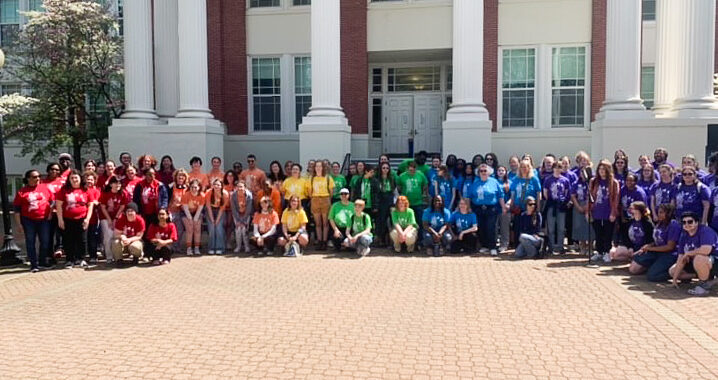Campus Alerts Keep Students Informed About Local Dangers
5 min readBy: BULLET STAFF
When Virginia Tech was fined $55,000 last month for failing to warn its campus quickly the morning of the shootings four years ago, it sent a strong signal that federal education officials are serious about crime alerts.
That has put increased pressure on college administrators to be sure they are adequately following what can be difficult regulations to interpret.
Security on Campus, a non-profit advocate for government policies to improve campus safety, states in its online Handbook for Campus Safety and Security Reporting, “a warning should be issued as soon as the pertinent information is available. This is critical: it’s expected that even if you don’t have all of the facts surrounding a criminal incident or incidents, you will issue a warning. You can then follow up with additional information as it becomes available.”
Under the federal law known as the Clery Act, in memory of a student who was killed, seven major on-campus crimes must be reported: criminal homicide, sex offenses, robbery, aggravated assault, burglary, motor vehicle theft and arson. The crimes must also be communicated in a timely fashion. However, “timely” is not defined.
Neither is there a mandated way to issue the warning. The individual institution determines the method in which the warnings are communicated. For the University of Mary Washington community, the information comes through email alerts, a scrolling red banner on the university homepage and subscribed text messages.
University spokesman George Farrar said his priority is to protect the students and faculty by communicating information as quickly as possible.
Ruth Lovelace, UMW Director of Emergency Management and Safety, added that warnings are issued “immediately upon request from either police or senior administration.”
The more pressing emergencies, wherein UMW students and faculty may be in imminent danger, are sent through text messages. The text-message alert system currently has 6,000 community members signed up, including alumni, parents, students and employees.
Any college found to violate the Clery Act may be fined or lose its eligibility to participate in federal student-aid programs. In the case of Virginia Tech’s recent fine, the federal government found that school officials took more than two hours to issue a warning on April 16, 2007 about two murders that occurred before 7:15 a.m. By 9:50 a.m., the same gunman had shot 60 other students, killing 30. To date, the highest fine under the Clery Act is the $350,000 levied against Eastern Michigan University for not reporting the murder of a student in 2006.
This reporting mandate resulted from the murder of a Lehigh University student in 1986. Jeanne Clery was raped and murdered in her residence hall, and upon hearing that the students at Lehigh University had not been notified about 38 other violent crimes on campus over three years prior to Clery’s murder, Clery’s parents lobbied Congress to enact The Jeanne Clery Disclosure of Campus Security Policy and Campus Crime Statistics Act .
The U. S. Department of Education defines the act as a “federal statute requiring colleges and universities participating in federal financial aid programs to maintain and disclose campus crime statistics and security information.”
At UMW, a crime alert was sent out on Dec. 5, 2010, entitled, “Suspicious Person on Fredericksburg Campus.”
Hours later, another email was sent by campus police, saying, “It is safe to resume all normal activities.”
According to the Clery Act, this did not have to be reported because there was no crime committed. However, Lovelace said she believes UMW has a great responsibility to inform its community of any threats to their safety.
“With this comes an expectation of delivery,” she said. “We take that very serious and continue to listen to our community and try to manage information and deliver it when necessary.”
Daniel Carter, director of public policy for Security on Campus, explained, “20 years ago colleges generally shielded this reality from public scrutiny.”
Now, statistics of campus crimes are provided to encourage precautions to be taken and for institutions to analyze the trends.
As required by the Clery Act, UMW regularly sends emails and text messages warning the student body, faculty, and administration of any crimes as well any existing threats on or near the UMW campus. The alerts are not limited to the crimes specifically defined in the Clery Act.
Captain Rick Pennock of the Fredericksburg Police Department believes it is better to send more alerts that include minor crimes rather than fewer alerts about crimes of more severe nature only.
UMW sophomore Amanda Buckner agreed. “It’s better to be safe, than sorry,” she said.
Fredericksburg police receive the alerts sent by UMW officials as well, and in turn UMW receives any alerts sent by the police department regarding crimes in the area.
“It’s a two-way street,” said Pennock.
When asked about the impact that crime alerts have had on reducing crime, Carter, of Security on Campus, stated that while crime alerts alone are not necessarily intended to lower the crime rate, “we do believe they have fundamentally changed how campus communities respond to crime threats, and that can lower the crime rate.”
Each crime alert that is sent out on this campus includes the note, “The UMW Police would like to remind everyone to be mindful of your surroundings and to increase your awareness of suspicious persons and situations.”
On Sept. 28, 2010, a campus-crime alert was issued regarding a suspicious man posing as a plain clothed Fredericksburg police officer.
A UMW student reported that she was walking from her car to her home and when the male approached her holding out his wallet claiming he was with the police. The man asked several times to see her identification, and wanted to come into her home to verify her identity. The student said no, locked the door and called the police.
Lovelace believes that the alert system helps make the community safer.
“It allows for the community to be alert and aware of any situation that may cause them harm,” she said.
Lovelace continues to support and encourage the proactive use of campus crime alerts, saying, “We have a greater responsibility to our community now to inform them of any issues that may involve their safety and the safety of our assets.”
Maarij Baig, Lizzie Brenner, Rob Bridges and Samantha Daniel contributed to this report.











